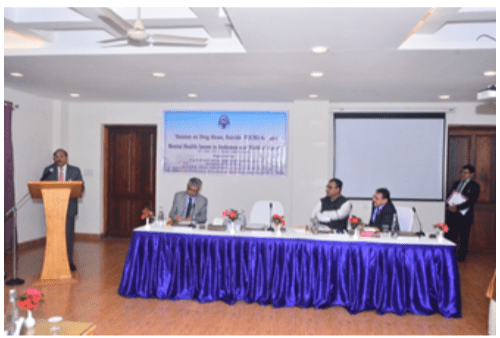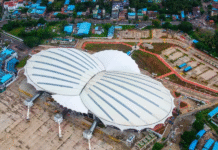Swaraj Dweep: A high-level awareness session held at the Dolphin Conference Hall in Swaraj Dweep on June 20 spotlighted urgent issues surrounding drug abuse, suicide, the Protection of Children from Sexual Offences (POCSO) Act, and mental health. The programme drew attention to pressing legal and psychological challenges affecting vulnerable communities in the Andaman and Nicobar Islands.
The session was attended by key members of the judiciary including Justice Surya Kant, Judge of the Supreme Court and Executive Chairman of the National Legal Services Authority (NALSA), Justice Dipankar Datta, Supreme Court Judge and Patron of the A&N State Legal Services Authority (SLSA), Justice T.S. Sivagnanam, Chief Justice of the Calcutta High Court and Patron-in-Chief of A&N SLSA, and Justice Sabyasachi Bhattacharyya, Judge of the Calcutta High Court and Executive Chairman of A&N SLSA. Their presence underscored the seriousness of the issues being discussed and the need for coordinated intervention.
The session aimed to raise awareness and foster discussion on a range of interlinked social, legal, and health-related concerns. With mental health increasingly becoming a priority area, and with rising cases of suicide and substance abuse, the platform brought into focus the gaps in awareness and access to institutional support. The legal aspects surrounding child protection under the POCSO Act were also addressed, underlining the need for stronger enforcement mechanisms and sensitization at the community level.
Discussions revolved around the need for collaborative approaches that bring together judicial institutions, law enforcement, health services, and civil society. While no new measures were announced, the event served to reinforce the importance of sustained legal literacy, community outreach, and early intervention strategies.
The vote of thanks was delivered by Bhawani Shanker Sharma, Registrar (Administration-II) of the Calcutta High Court. The programme forms part of a broader effort by the legal services authorities to engage the public, especially in remote island territories, on sensitive but essential issues that require urgent and consistent response.





